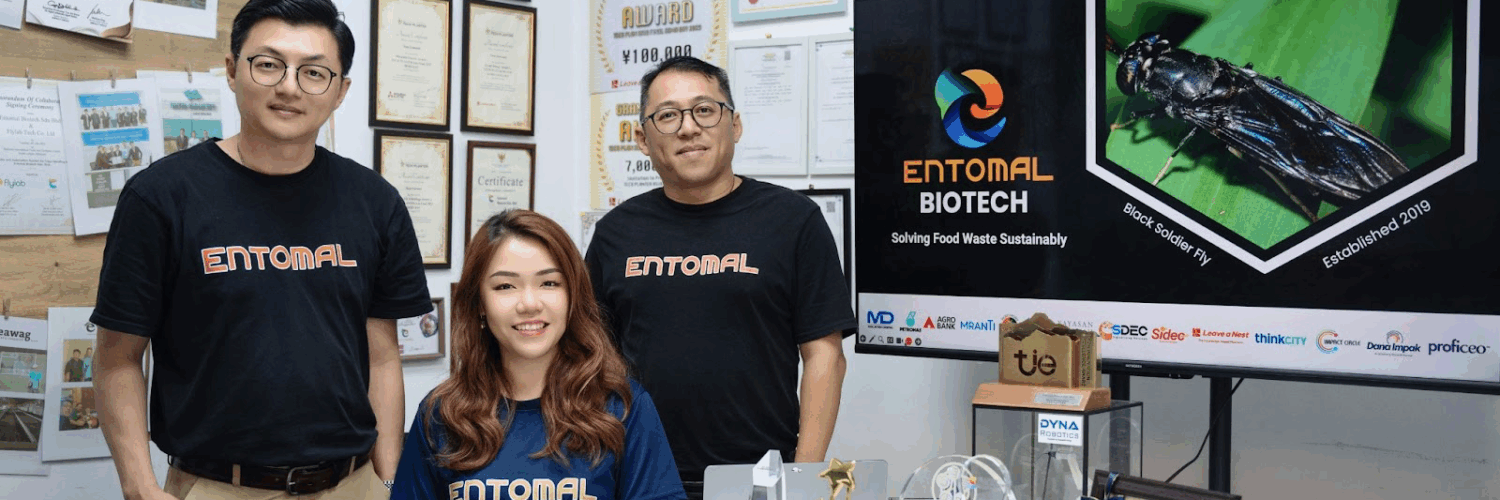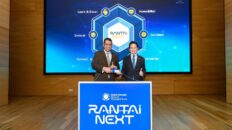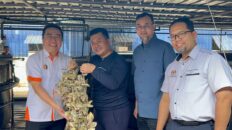MALAYSIA SME’s Changsong Li recently sat down with Dr. Yanni to learn more about their journey, the science behind the bugs, and how Entomal is reimagining waste management—one larva at a time.
By Changsong Li, Photos courtersy of Entomal Biotech
The Black Soldier Fly
“I used to be very afraid of bugs,” Dr. Yanni laughed. “I would never have imagined building a business around them. But when I realised what these little creatures could do—not just for the environment but for economies and food security—I couldn’t unsee their potential.”
Dr. Yanni’s transition from an engineering graduate to insect entrepreneur is nothing short of remarkable. She first encountered Black Soldier Fly (BSF) larvae through composting and was initially repulsed by their appearance. But her perspective shifted in 2022 after co-founder Thomas introduced her to their capabilities. Soon after, she joined the team, spearheading the commercialisation of downstream products.
“They’re not slimy,” she added. “They’re dry, very clean, and incredibly efficient. That was a turning point for me.”
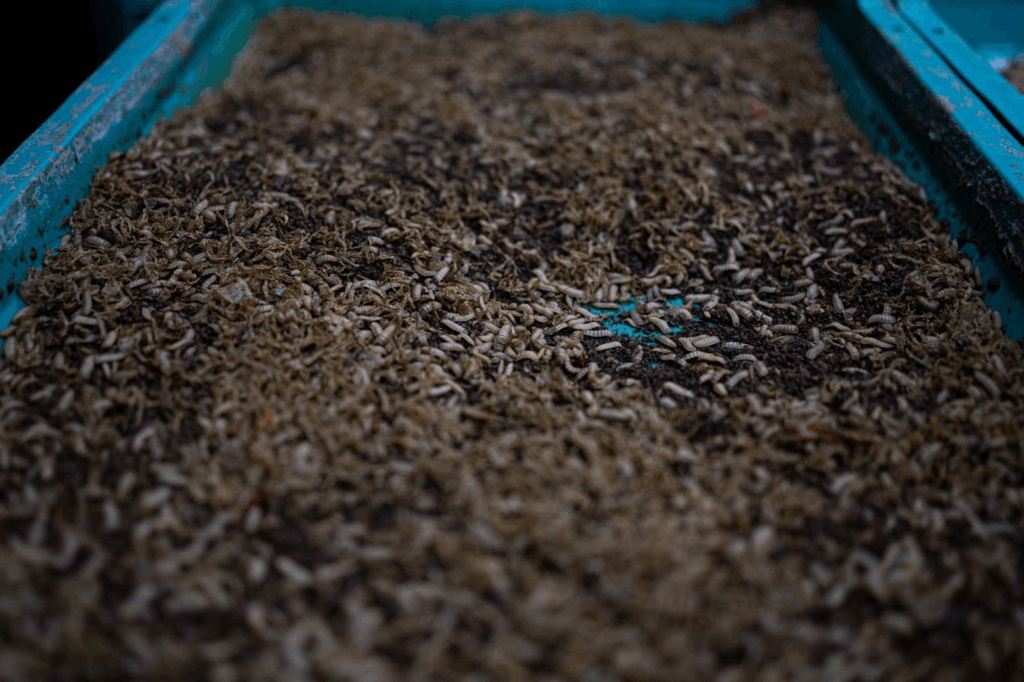
The BSF lifecycle begins when adult flies lay between 500 to 900 eggs. Within days, neonate larvae hatch and begin a week-long feeding frenzy, growing up to 10,000 times in size.
“They eat and grow, eat and poo. That’s all they do. They’re nature’s best cleaners,” said Dr. Yanni.
According to Dr Yanni, BSF larvae can reduce food waste volume by 90% in just one day, accelerating decomposition rates compared to natural microbial processes. Their digestive systems are equipped with a rich microbiome capable of breaking down complex organic matter, including fats and proteins—into simpler compounds in just a few days. The broken down material is what the larvae feed on.
“In just a matter of days, they transform what would typically rot in landfills into sustainable agricultural products,” she explained. The larvae which are high in protein are made into animal feed and their droppings (known as frass) can be used as organic fertiliser.

Biotech Meets Circular Economy
“You can find BSFs anywhere,” said Dr. Yanni. “But the question is—how do you industrialise and commercialise their breeding at scale? Entomal doesn’t just breed larvae; we build precision systems for breeding, harvesting and commercial deployment.”
Vic, the mastermind behind Entomal, as Dr Yanni informed, comes from a wastewater engineering background, and first noticed BSF larvae thriving in industrial sludge. His research guided by renowned entomologist Dr. Jeffery K. Tomberlin of Texas A&M University, led to the development of an integrated system optimised for breeding, harvesting, and commercial deployment in Malaysia.
“This includes patented technologies designed to maximise productivity—such as lighting systems to stimulate mating, egg laying and rearing trays that provide suitable temperature, humidity, and ventilation for the larvae,” Dr. Yanni shared. “We call it a five-star confinement centre. Every tray is perfectly ‘serviced’ so the larvae can thrive.”
The larvae rearing area is fitted with sensors that continuously monitor temperature, humidity, carbon dioxide, and ammonia levels – for optimal larvae breeding and growth whilst capturing valuable carbon data. These data points are fed into an optimisation system, allowing adjustments to environmental conditions to ensure optimal larval growth. “By monitoring these microclimates,” Dr. Yanni explained, “we’ve seen up to 30% improvement in breeding (quantity of eggs and then larvae) outcomes across cycles.”
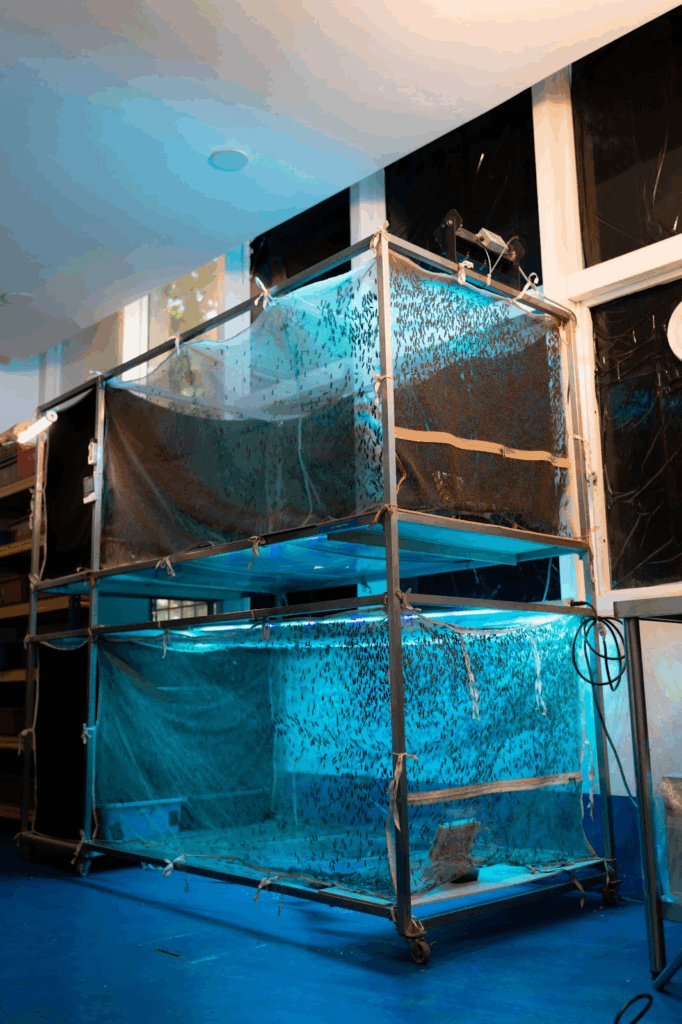
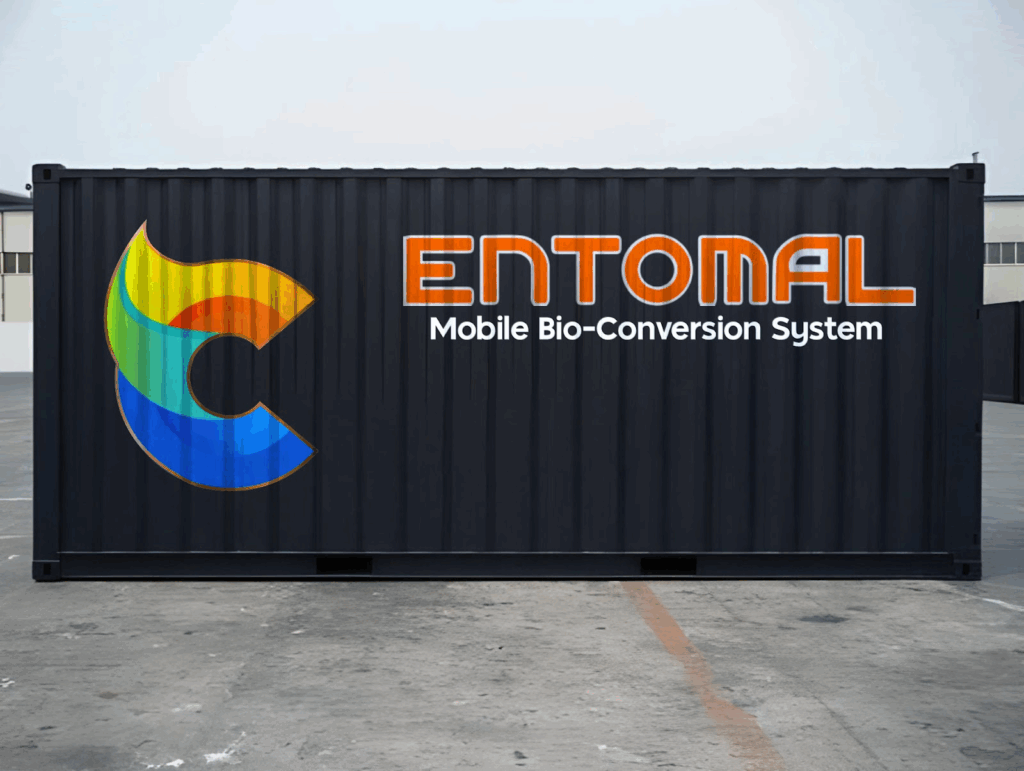
The company’s research as led to a one-of-its-kind solution, an award-winning and patented system that treats waste at source, known as the Entomal Mobile BioConversion system.
The system is leading the charge in upcycling food waste at the source. Housed within a 20-ft shipping container, this modular, plug‑and‑play unit processes up to 1,500 kg of food waste per month, converting it into insect protein and organic fertiliser in just 7 days.
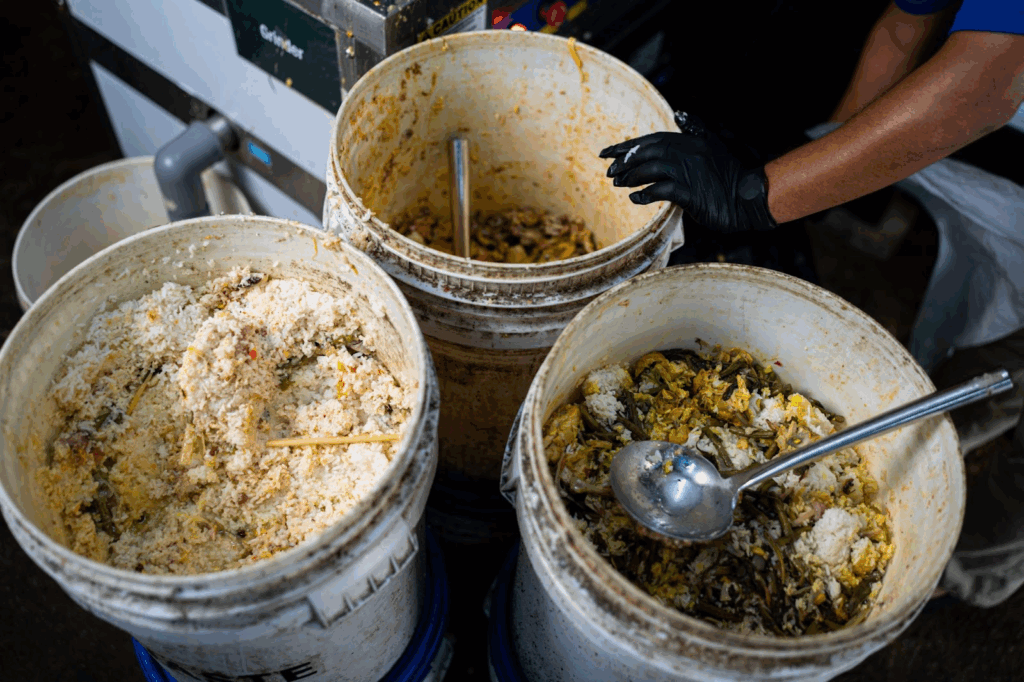
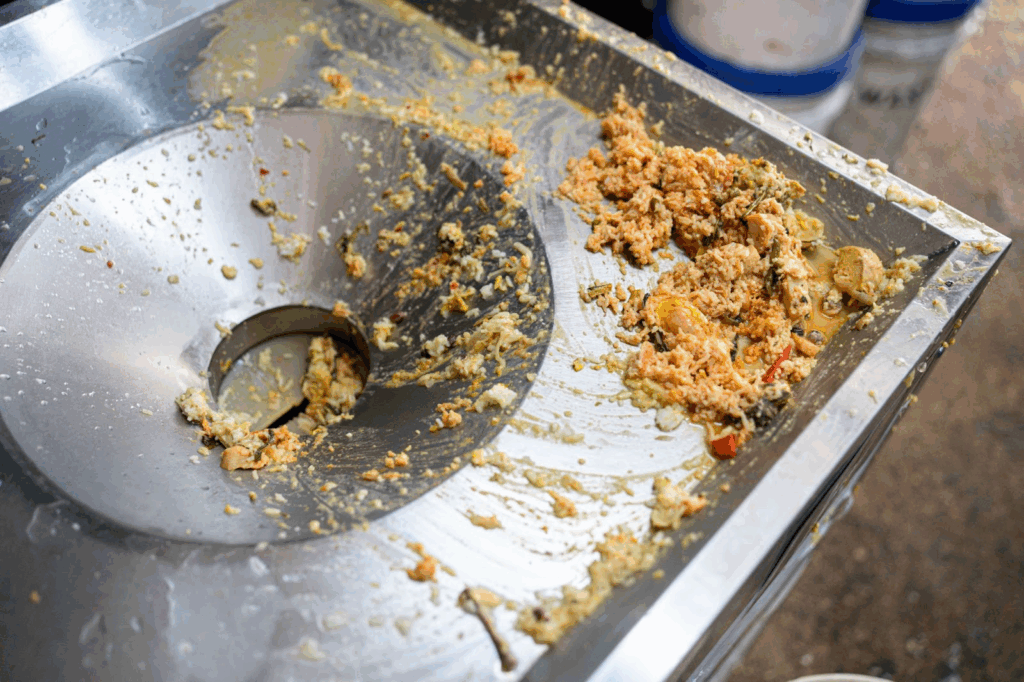
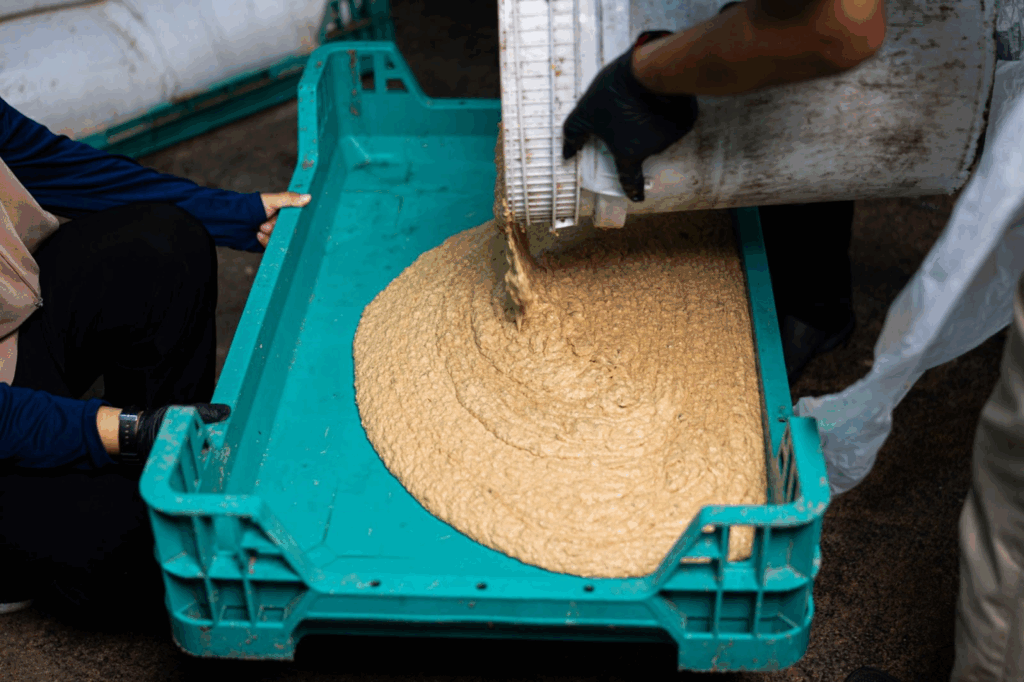
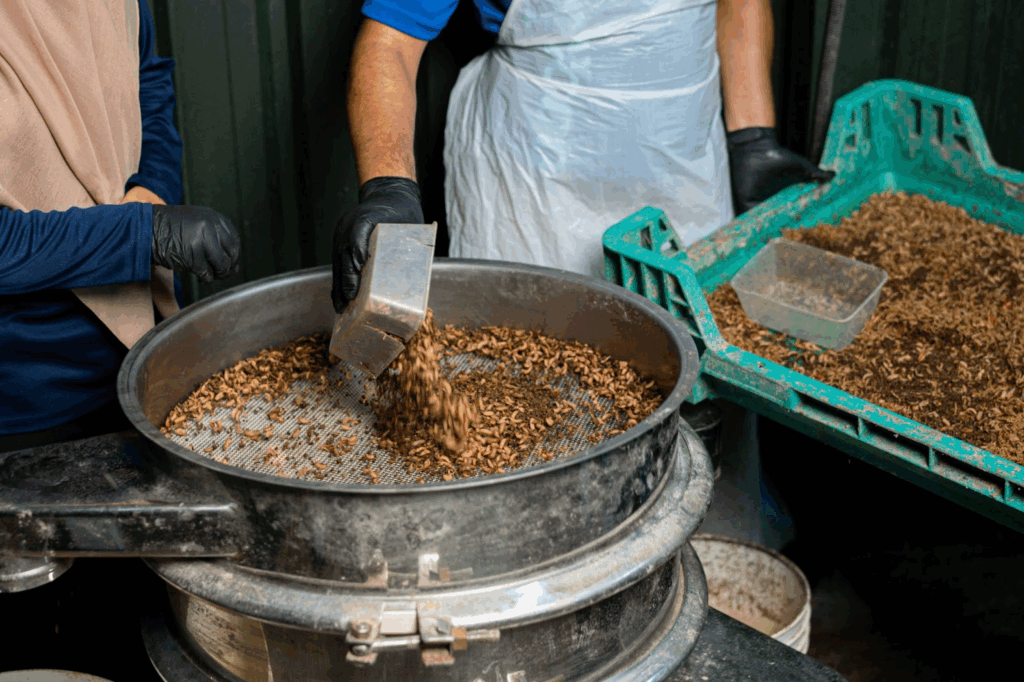
The next challenge – scaling
“When you have millions of larvae, how do you ensure they don’t escape?” she said, smiling. “And more importantly—how do you ensure the supply of larvae matches business demand?”
For this, Entomal offers two models: decentralised containers and centralised plants.
Decentralised containers are patented 20-foot mobile units placed onsite—at hotels, schools, or other pre-determined locations. “Clients subscribe based on the tonnage of waste processed,” Dr. Yanni shared. Manning of the container can be from the Entomal side or trained personnel from the client’s end, she explained.
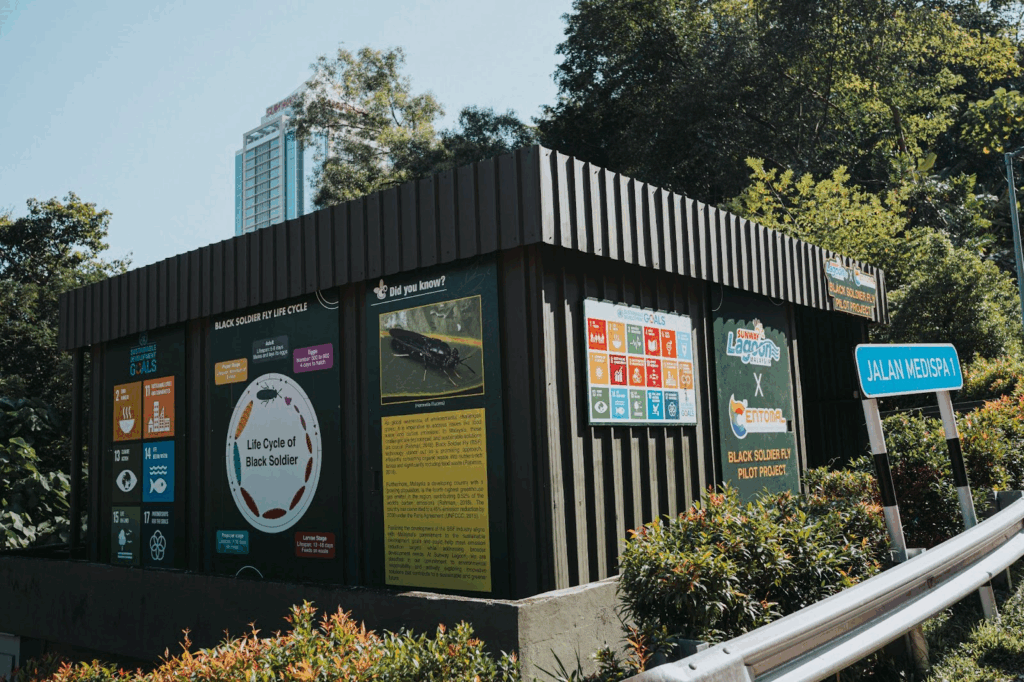
To date, Entomal has deployed over 6 decentralised units across Klang Valley, processed more than 50 tonnes of organic waste, and produced over 20 tonnes of insect protein and frass-based fertiliser. She also explained future centralised units that could process larger tonnes of waste.
Centralised plants, meanwhile, are large-scale facilities for processing municipal and industrial waste, equipped with robotics and automations. Both models are designed with circular economy principles at their core—turning waste into valuable resources while delivering measurable environmental and economic impact.
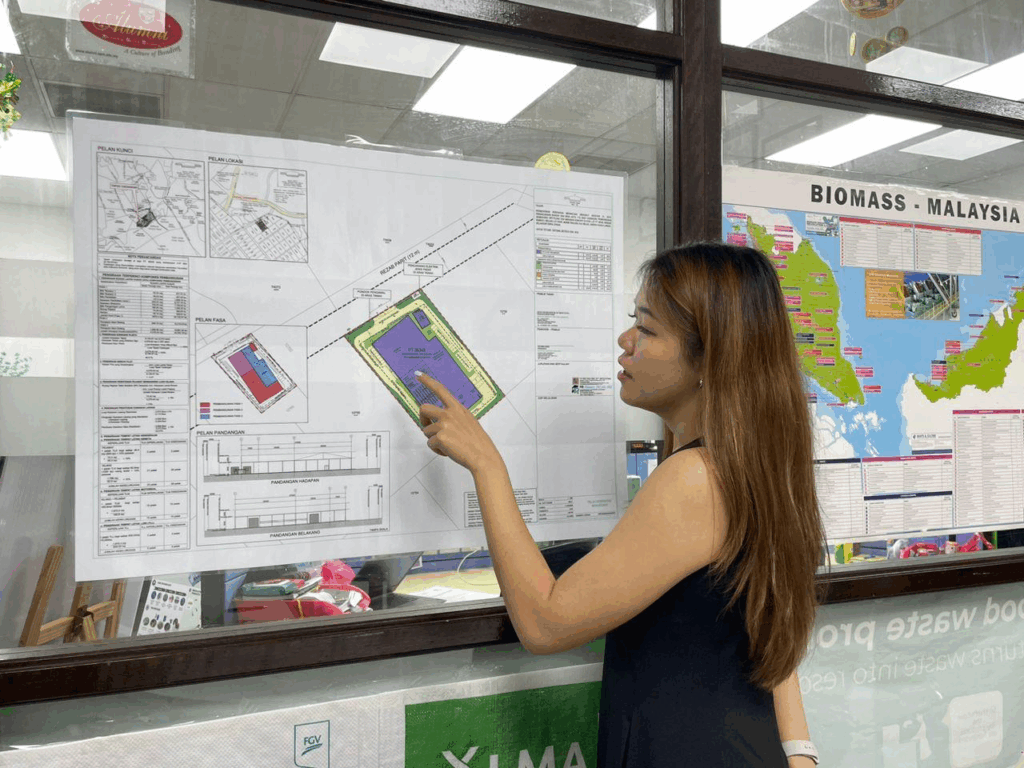
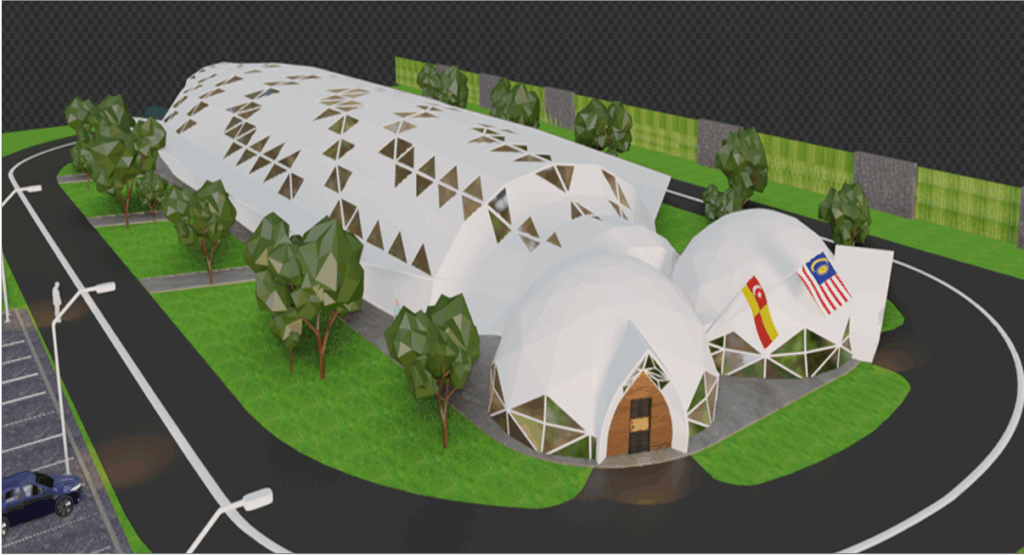
Both the decentralised and centralised systems have carbon tracking sensors in place. “We’ve observed a 25% reduction in our clients’ waste management bills over a six-month period. Together with access to carbon data, we think it’s definitely a win-win proposition, ” said Dr. Yanni.
Circular Economy in Action
Entomal’s vertically integrated business model captures value across upstream, midstream, and downstream processes. The upstream involves food waste solutions for hotels, malls, F&B outlets, and others. The midstream focuses on supporting agribusiness to set up BSF operations with our technical systems. The downstream transforms larvae into animal feed and frass into organic fertiliser.
“Together, these processes sustainably help advance the circular economy,” said Dr. Yanni, who also highlighted that Entomal’s capability to effectively leverage the entire supply chain stream is what makes them highly sustainable.
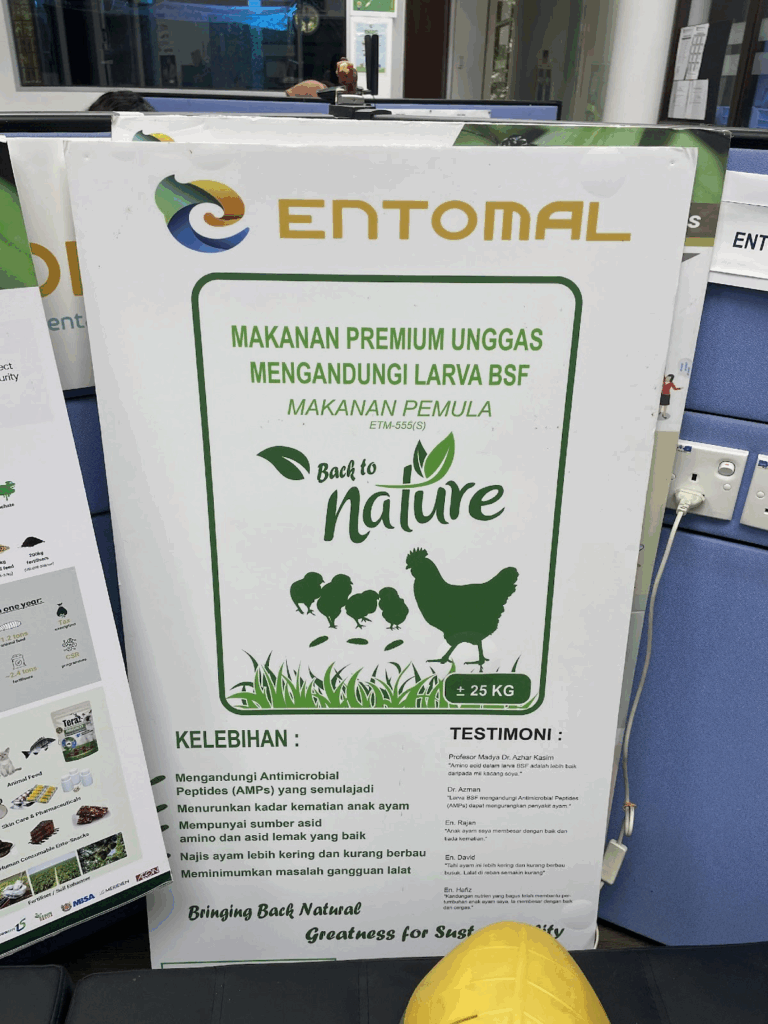
Dr Yanni was also keen to share that each tonne of food waste processed in their confined system results in only 0.1 tonnes of CO₂ emissions—compared to 2.5 tonnes if left in landfill. This represents a 96% reduction in greenhouse gas emissions. Entomal, she advised, is working with SIRIM and pursuing validation under the VERRA Verified Carbon Standard (VCS), with each tonne processed potentially eligible for approximately 2.4 tonnes of CO₂-equivalent credits. These are tangible data that indicates the impact we make alongside our customers. EMBC yields tax exempt benefits and carbon reports, enhancing ESG profiles with no upfront CAPEX required.
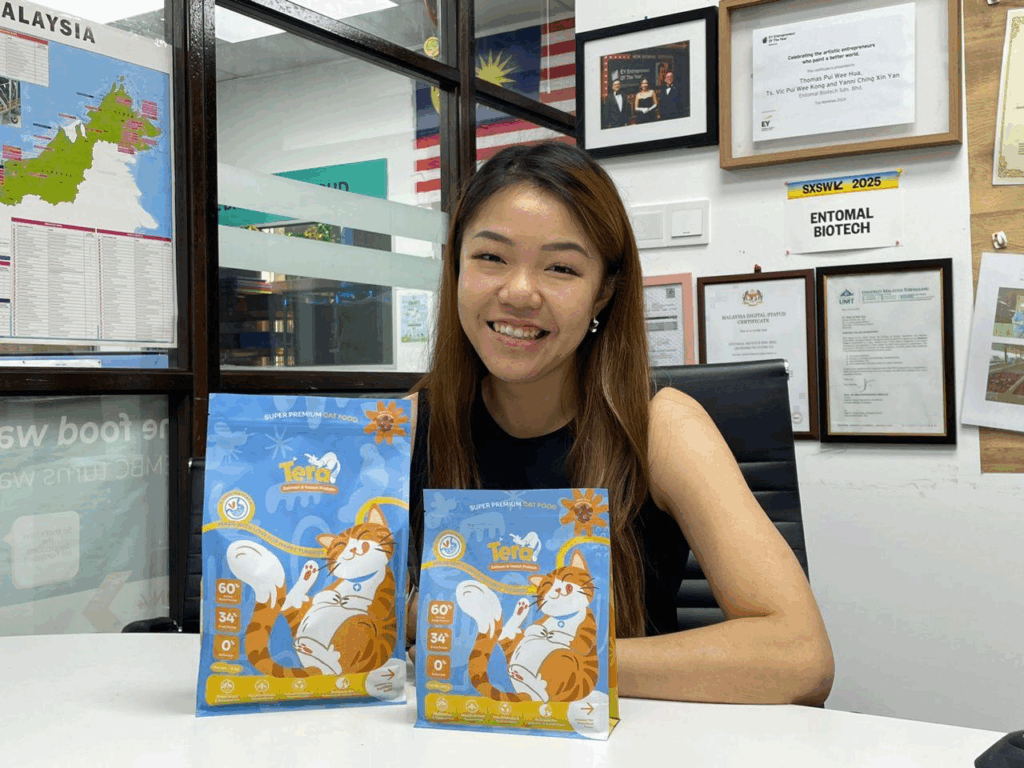
A Future with Purpose
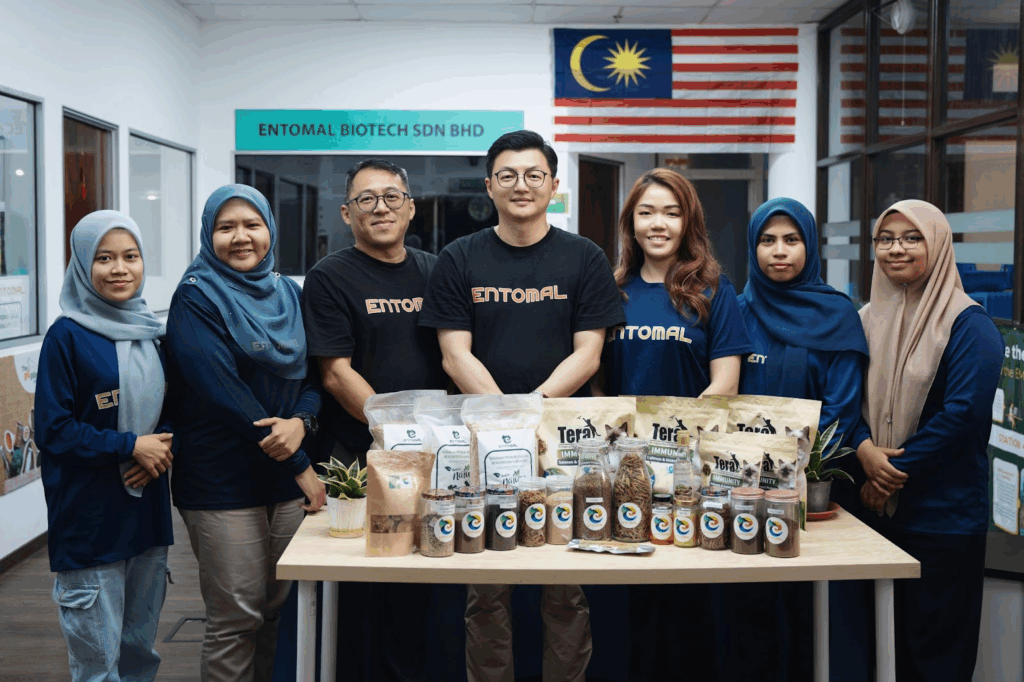
“We’re not just in this to make money. We want to create jobs, educate communities, and empower change,” shared Dr Yanni. The deployed on site installations doubles as an awareness hub, elevating waste segregation and reuse habits among businesses and consumers.

Entomal is actively training local farmers to operate units and manage larvae farms. “We want this to become a distributed network of micro-waste solutions—think of it like a franchise model, but with bugs.” With more support from industry partners, Entomal hopes to explore regional partnerships across the region.
Synergy and Momentum
Dr. Yanni credits the startup’s momentum to the synergy among its co-founders and its team.
“We each carry a piece of the mission,” she said. She is also grateful for all the help they’ve gotten along the way.
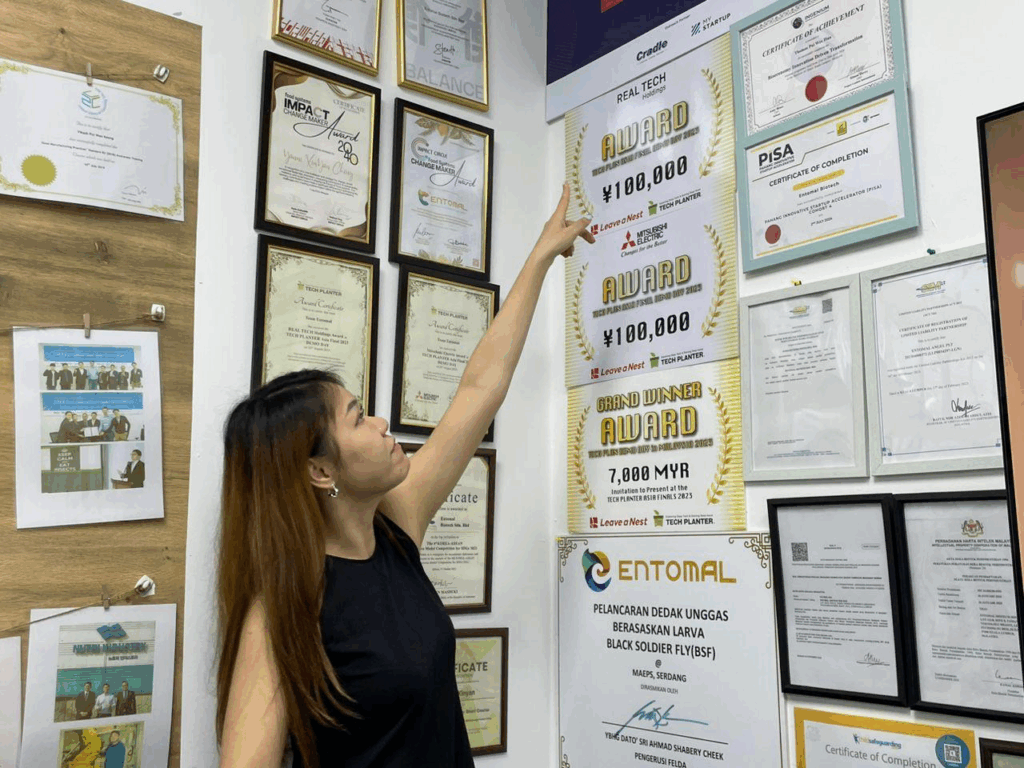
Over the years, Entomal has received crucial financial and institutional support that helped propel its growth from an early-stage concept to an operational impact enterprise. “We’re especially grateful to Leave a Nest for believing in us early on,” said Dr. Yanni, referring to their win in the Tech Planter Malaysia 2023 and Tech Planter Asia, as well as securing funding from their investment arms.
Recently, the Entomal founders were awarded EY Entrepreneur Of The Year™ Malaysia 2024, through the EY Entrepreneur Of The Year™ program which recognises entrepreneurs who build a confident future for all.
“Doing good should also mean doing well. Sustainability without financial viability, ventures cannot be sustainable,” said Dr. Yanni, highlighting an undeniable fact – that profits are important in growing a business sustainably.
After our chat, Dr Yanni showed me around their office and I was awed by the minute creatures with so much power. “So, the next time you scrape your leftovers into the bin,” she quipped, “Imagine this, somewhere in a container under soft blue lights, a tiny larva is feasting—and helping shape a cleaner, smarter future for the planet,” she concluded.



